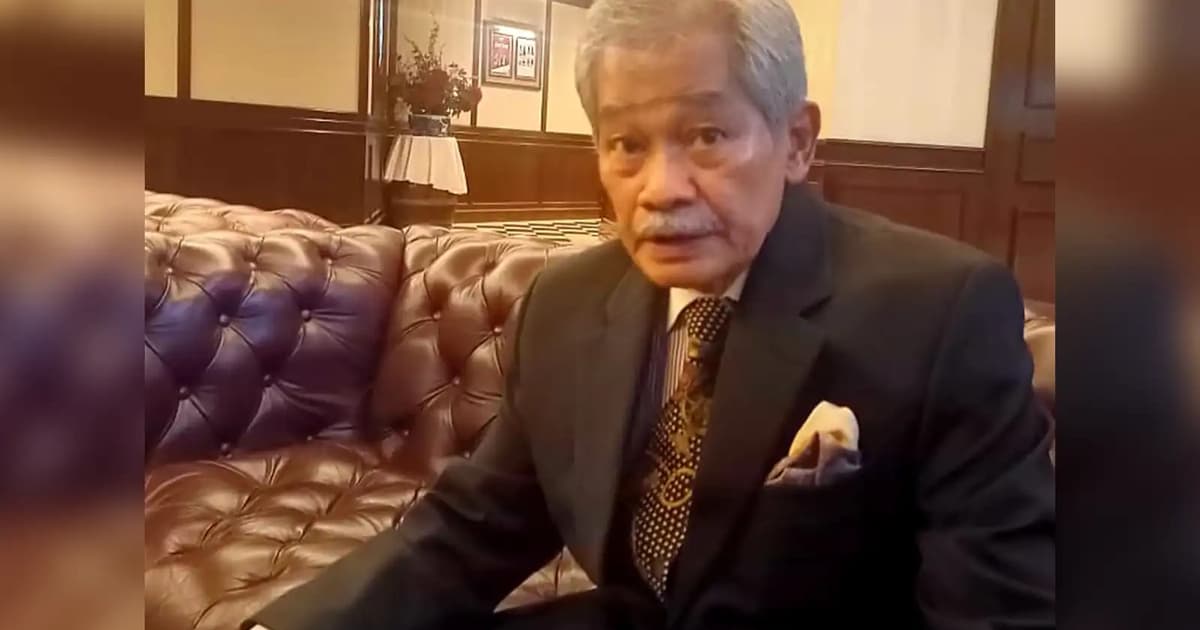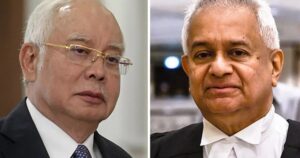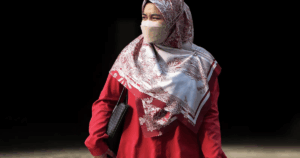
It was just six days after his 22nd birthday, and a freshly-commissioned second-lieutenant was thrusted into the centre of a fierce combat.
Kamaruddin Mohd Jamal, now a retired army major, said he would never forget the battle as he stared death in the face on Aug 21, 1964.
It was during the Confrontation with Indonesia, when president Sukarno opposed the formation of Malaysia on Sept 16, 1963.
“I vividly remember it was a Friday as we were mobilised in the deep jungles of Pontian, Johor. We received intelligence reports of the ‘Ganyang Malaysia’ (crush Malaysia) infiltration by 15 Indonesian (TNI) troops at Kg Peradin, nearby,” he said.
He added that he was directed by his company commander, Captain Raja Aman Shah, to lead a platoon to confront the enemy in the deep dense forest, surrounded by rubber plantations.
“We split the platoon into three sections – one of which I led – and made our way towards the enemy’s location.

“As we approached them, we came under heavy automatic rifle gunfire,” recounted Kamaruddin at the ‘Federation Military College (FMC) Intake 5’s 63rd Reunion 2025′ at the Royal Lake Club recently.
He said he would have been shot if not for the tree that was shielding him. “I felt the tree’s splinters striking my face.”
Undaunted, he ordered his soldiers to return fire. “Realising the battle was going nowhere, I took the risk of hurling a hand-grenade towards the enemy, knowing full well that the grenade could ricochet back towards me if it hit a tree,” he said.
Kamaruddin, who was commissioned into the Royal Malay Regiment in December 1962, added that when his action failed to dampen the enemy attack, he hurled a second hand-grenade at them.
“I hurled another two hand-grenades, one of which ricocheted towards me and I took evasive action. I could feel the vibrations as it exploded close by.

“Nevertheless, the grenades worked in our favour as the enemy dispersed thereafter,” said Kamaruddin, 83, who was born in Kuala Lipis, Pahang on Aug 15, 1942.
When all was quiet, they crept towards the enemy hideout and discovered four dead soldiers.
“We pursued the enemy and managed to kill one more and another surrendered. We also seized a cache of firearms and ammunition,” said Kamaruddin, who was bestowed the Pahlawan Gagah Berani (PGB) gallantry award on June 21, 1965.
The PGB is awarded to those who have shown extraordinary courage and bravery when facing the enemy.
In 2009, the government approved an increase in the commemorative allowance for PGB recipients from RM300 to RM1,500 per month.

Retiring from the army after 12 years, Kamaruddin joined Esso Production Malaysia Inc in 1975, later serving as its human resources director.
In March 2002, he was appointed to the Petronas Dagangan board.
Before the reunion, Kamaruddin, with his course-mates and their families travelled by bus for a durian feast at Raub, followed by lunch at Bentong, Pahang.
Among the course-mates were former Royal Malaysian Navy (RMN) chief Vice-Admiral (Rtd) Mohd Shariff Ishak, Armed Forces headquarters chief-of-staff Vice-Admiral (Rtd) Harun Mohammad Salleh, RMN deputy chief Rear-Admiral (Rtd) Yaacob Daud (later Task Force VII -Vietnamese refugees deputy commander) and former Royal Malaysian Air Force Inspector-General Brigadier-General (Rtd) Soon Lian Cheng.

Soon, along with his course-mate brother-in-law Flight-Lieutenant Buang Ahmad, were the first two RMAF officers sent to New Zealand for pilot training in 1962.
Others included Major-General (Rtd) Awangku Ibnu Basit Apong, who rose to become Royal Brunei’s Armed Forces chief and later its deputy defence minister.
He was among three from Brunei, along with former culture, youth and sports minister Major-General (Rtd) Awang Mohammad Daud and the late former ambassador Major-Gen (Rtd) Awang Sulaiman Awang Damit – who were Royal Brunei Armed Forces first and second chiefs.
They were among the 52 FMC Intake 5 regular-commission cadets who were initially trained at Port Dickson, Negeri Sembilan in 1961 and other academies later on.
Of the 52 cadets, three each were from Singapore and Brunei while the remaining Malaysians comprised 39 from the army, six from the navy and two from the air force.






